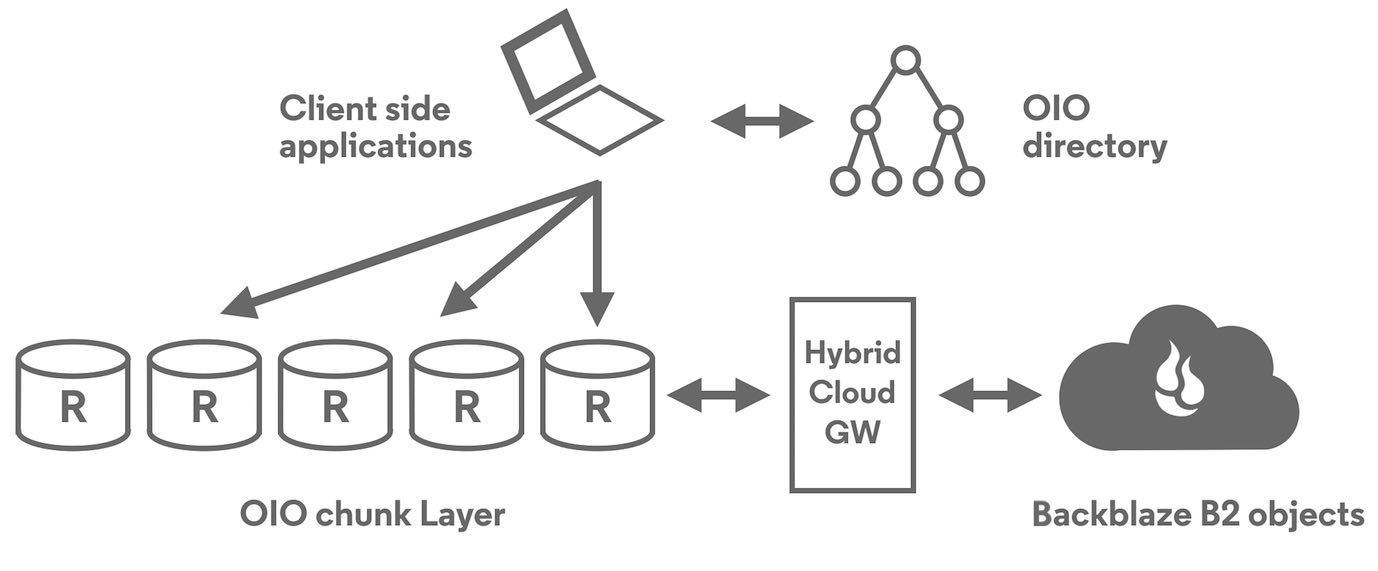OpenIO Integrating Backblaze B2
To deliver low-cost automated, flexible hybrid cloud data management solution
This is a Press Release edited by StorageNewsletter.com on July 18, 2016 at 3:19 pmOpenIO SAS and Backblaze, Inc. announce that Backblaze B2 Cloud Storage is integrated in OpenIO and can be used as an off-site/public cloud destination.
OpenIO manages petabytes of an organization’s digital data by applying data retention rules that encapsulate the organization’s policies and procedures. B2 allows OpenIO customers to store data in the cloud, for 1/4th the cost of similar services, like Amazon S3 or Microsoft Azure. Since B2 is ready-access storage, the customer can retrieve data stored off-site in the B2 cloud within minutes rather than waiting hours or days to recover data from an LTO tape system or a cold cloud storage system such as Glacier.
Organizations are faced with the challenges of exploding amounts of data and increasingly complex data retention rules while trying to manage the cost of providing the infrastructure to store everything. OpenIO provides a single system from which to manage the data and implement data retention policies to determine the best place for the data to reside. For data that is to be stored off-site, in the public cloud, B2 provides ready-access storage at $0.005/GB/month with zero upload fees. Data typically assigned to cold storage systems, like LTO tape, can be stored in B2 at a comparable cost, while providing warm storage access and recoverability speeds.
“We are really excited about our partnership with OpenIO. Together we will make hybrid cloud storage easy to manage for organizations with petabytes of data wishing to leverage the best of on-premise and cloud storage,” said Backblaze CEO and co-founder, Gleb Budman. “We look forward to working with OpenIO to offer the lowest TCO for this unified solution.“
“Backblaze is an excellent partner for OpenIO. Together we bring to the market a very unique hybrid cloud storage solution. This joint offer with B2 will allow businesses to unify their hot and cold storage under one single OpenIO namespace, bringing an unmatched TCO and still providing real-time performance to access all data. With OpenIO, data management now can easily extend beyond your data center’s walls,” stated Laurent Denel, CEO, OpenIO.














 Subscribe to our free daily newsletter
Subscribe to our free daily newsletter

